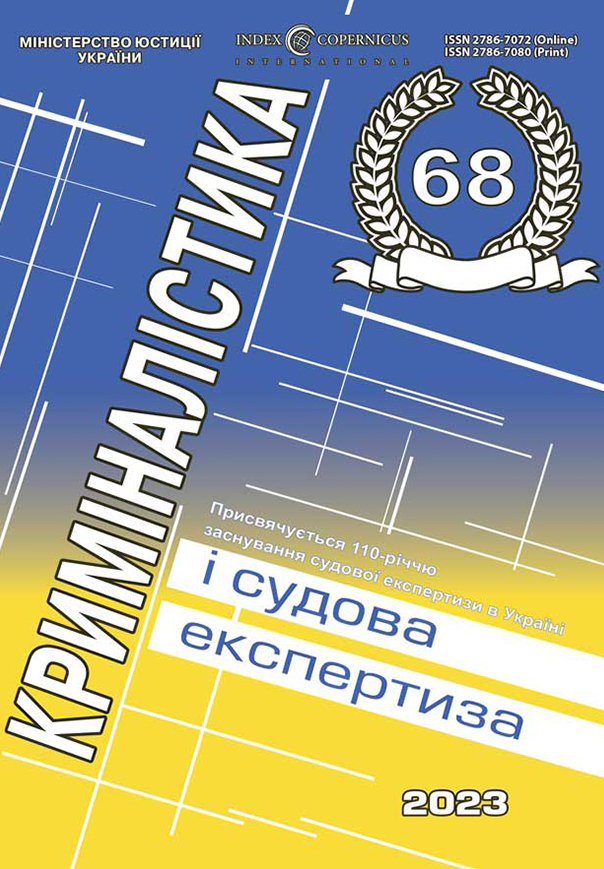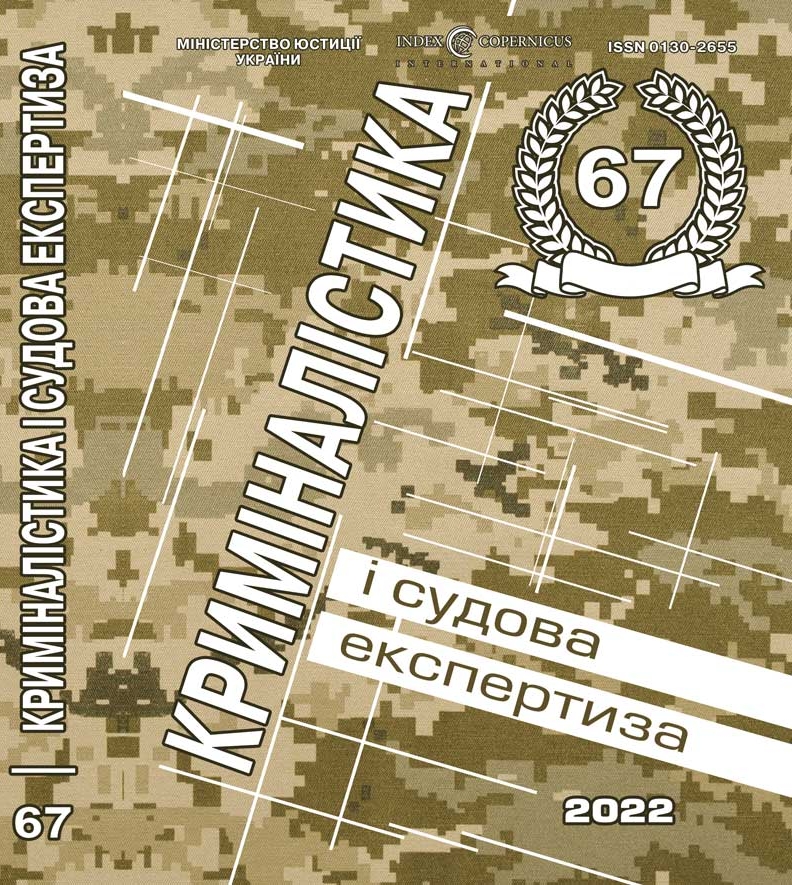DOI: https://doi.org/10.33994/kndise.2023.68.05
I. Sivchuk
At the current stage of development and construction of a legal state, as well as with a change in the paradigm of state administration, forensic examination occupies an important place in the judiciary. However, today there are some gaps and shortcomings inherent in the regulatory legal regulation of forensic expert activity, the presence of which does not contribute to fully guaranteeing the independence of forensic experts and their full performance of their activities. Therefore, the question arises regarding the detailed consideration of the content of the legal framework that regulates the forensic expert activity and ensures the functioning of the human rights system of the government in the state.
The article also highlights problematic issues related to regulatory and legal regulation and the conduct of forensic examinations in Ukraine. A review of the scientific opinions and statements of leading scientists and scientists regarding this situation was carried out. Current articles of the criminal procedural legislation concerning the Institute of Forensic Expertise have been analyzed. Changes in regulatory documents regulating forensic expert activity in Ukraine were studied (special attention was paid to changes in the Criminal Procedure Code of Ukraine).
It has been established which directions are included in the normative and legal regulation of the institute of forensic examination in the state.
The role of forensic expertise in the judiciary is emphasized and the opinions of scientists regarding the improvement of the apparatus of legal regulation of forensic expertise in Ukraine are analyzed.
Key words:
legal regulation, expert, forensic examination, the principle of legality, the principle of objectivity, the principle of completeness of research, proof.


